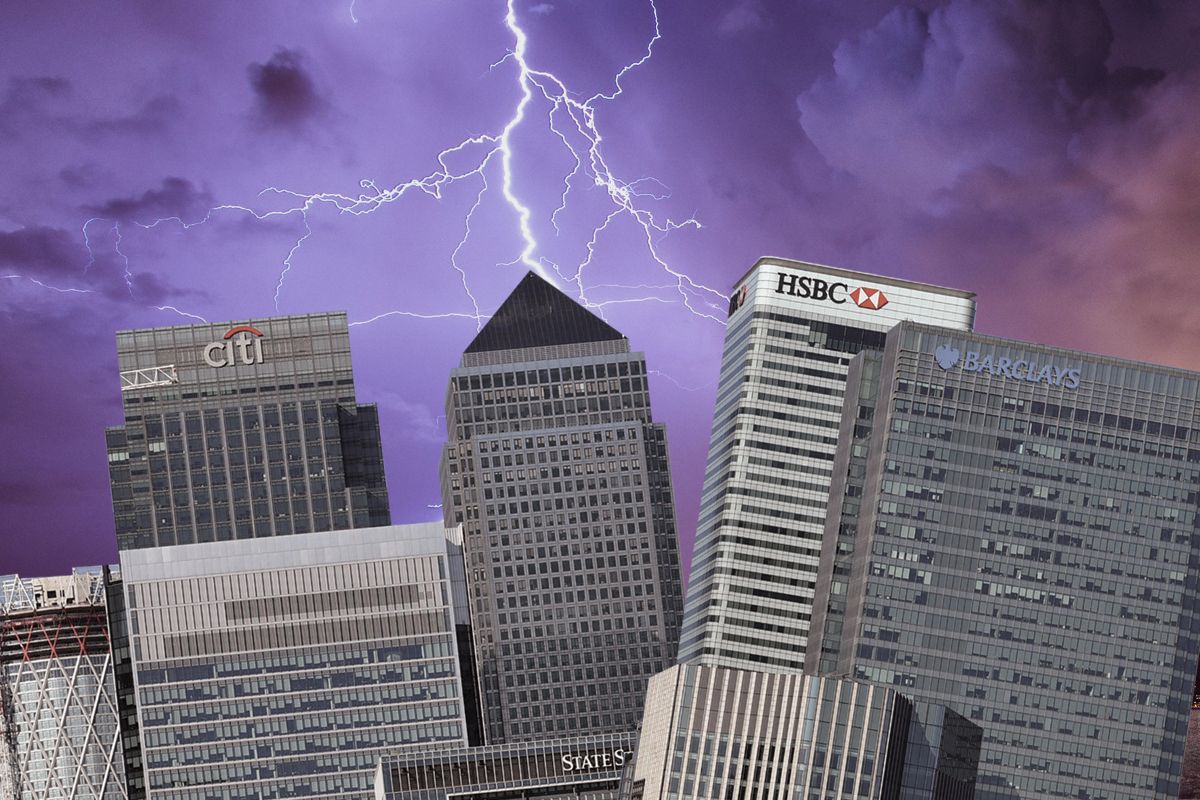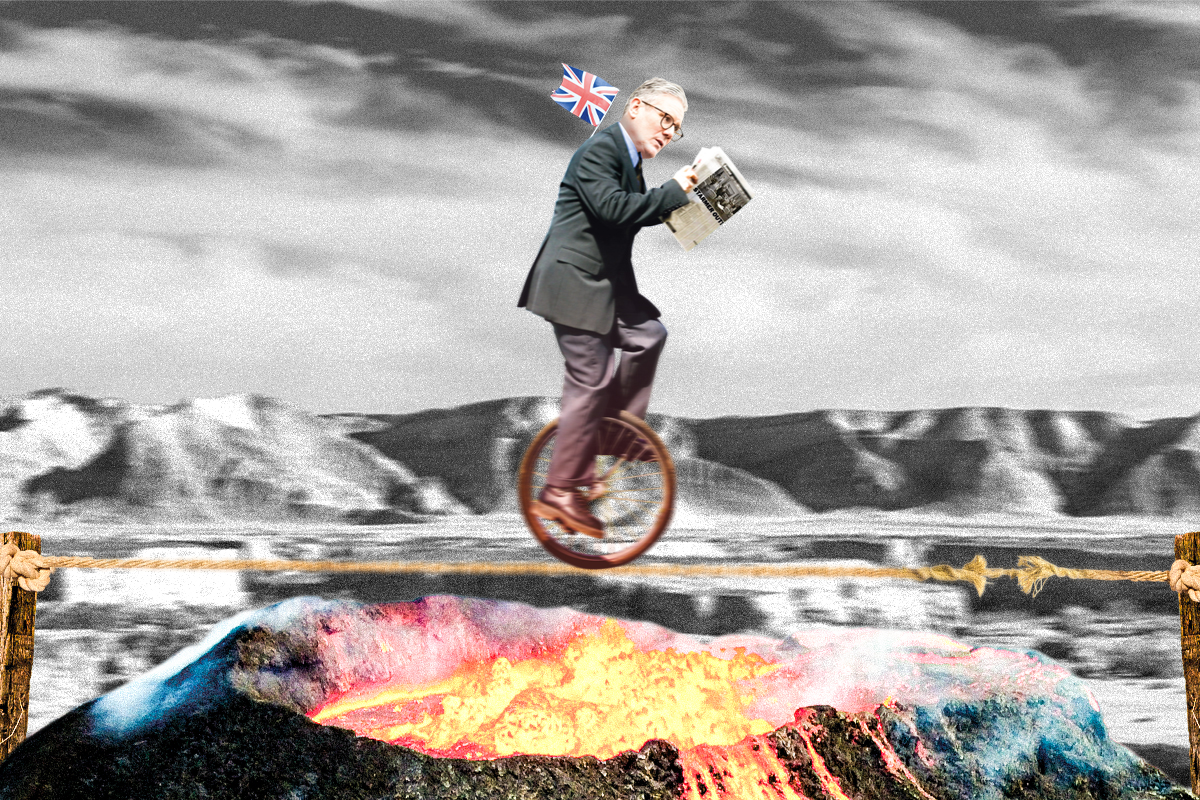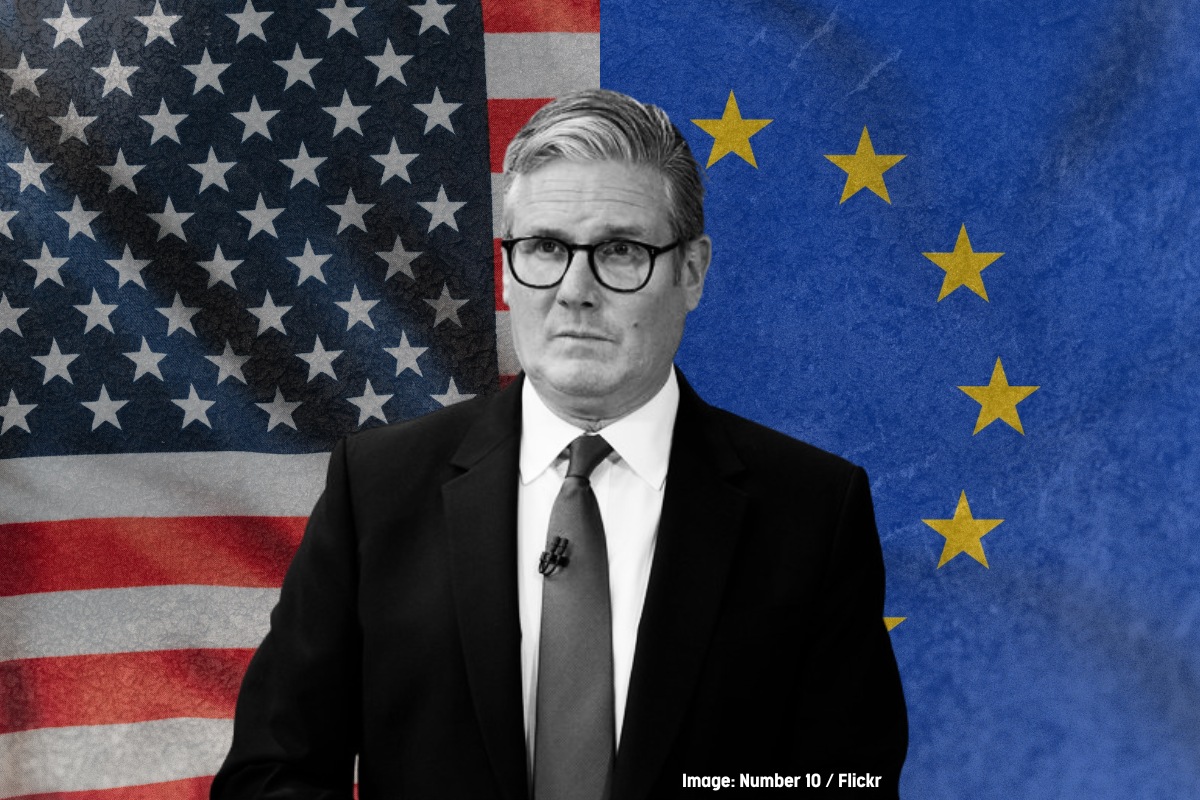In the past month, diplomatic history has been made – in case you didn’t notice – with Britain securing ‘landmark’ trade deals with India and the USA, and carrying out a ‘UK-EU reset’, supposedly heralding a new era for Britain’s relations with Europe.
“Britain is back on the world stage,” declared Sir Keir Starmer in a series of flashy social media videos. These deals will mean “jobs saved, jobs created, more growth” and “more money in the pockets of working people”.
View this post on Instagram
The liberal press was no less effusive. “Starmer managed to have his cake and eat it,” gushed The Independent, referring to the European Union deal. The Prime Minister has defied all the odds to “break the Brexit conundrum”, they proclaimed.
And so, at long last, Britain is saved! The Brexiteers’ dream of a buccaneering ‘Global Britain’, championing free trade across the Seven Seas, has been realised! All is for the best in the best of all possible worlds! Rule Britannia – and so on, and so forth…
Not quite.
Note of doubt
Amidst this sycophantic symphony, a discordant note of doubt was sounded by the more serious bourgeois commentators and strategists.
On the EU pact, political risk consultants Eurasia Group wryly remarked that “if this is a cake, then it’s not a very tasty one”.
Elsewhere, Martin Wolf, chief economics commentator at the Financial Times, suggested that “the deals, while better than none, might not merit even one cheer”.
Wolf all but dismissed these deals as damage limitation for Donald Trump’s trade wars and the disastrous economic fallout of Brexit. “In all,” the FT columnist writes, “the UK’s trade opportunities have been unambiguously worsened…relative to what they were before 2016.”

This gloomy outlook is no exaggeration. Despite all of Starmer’s braggadocio about “more growth” and money in workers’ pockets, these deals will have a negligible effect on Britain’s flatlining economy.
The US is still imposing a blanket 10 percent tariff on all UK exports. And combined, the India and EU deals are estimated to add a mere 0.4 percent to the UK’s GDP…by 2040. What a showstopper!
These minor concessions pale in comparison to the extremely dire situation facing British capitalism, which is massively lagging behind its rivals, and has been for some time.
A recent study by the Centre for European Reform (CER) on “Britain’s trade malaise” found that Britain’s goods exports are down by 20 percent compared to pre-2019 levels.
Even more revealing is that since 2020, relative imports and exports have subtracted 0.5 percent from Britain’s annual GDP. In other words, the balance of trade is having a net negative effect on the UK economy.
The CER described this as “a subdued export performance on a scale that is unprecedented in recent history”.
For an open economy reliant on trade, already facing down the spectre of ‘stagflation’, this long-term decline can only have disastrous consequences. And as always, it will be the working class that will suffer the brunt of this.
Worst of both worlds
To get partial access to the single market, meanwhile, something the UK had access to automatically as a member of the EU, Starmer’s government has had to make significant concessions to Brussels.
Leaving aside the hotly-debated and endlessly-tedious question of fishing rights, Britain must now have so-called “dynamic alignment” with the EU in the energy and agri-food sectors. This means submitting to the very EU regulations and authorities that Brexit was supposed to tear away from.
Far from the “win-win” that Starmer is boasting about (“breaking the Brexit conundrum”), this “reset” sounds like the worst of both worlds for British capitalism: sacrificing the ‘sovereignty’ that Britain gained by leaving the EU, whilst ending up with less access to the single market than the UK had before Brexit.
With his Faustian pact, the PM has left himself open to attacks from the right-wing press and politicians, who are raising a hue and cry about this “surrender” and “betrayal” to Europe. Boris Johnson even emerged from his political hibernation to brand Starmer the “manacled gimp of Brussels”.
#TomorrowsPapersToday⁰Sunday Express: “BETRAY BRITAIN AT YOUR PERIL” by David Williamson. Starmer faces voter wrath if he surrenders to EU, Farage warns.⁰https://t.co/gIMcj47Y6Z⁰For more papers, visit⁰https://t.co/b0xejSwtHj pic.twitter.com/Maw3nvSTUR
— The Sentinel Current (@sentinelcurrent) May 17, 2025
The worst part for poor old Keir is that, outside of Westminster and the offices of the liberal press, no one seems to care about his stunning diplomatic tour de force.
Quite rightly. None of this will make one jot of difference to the millions of working-class families struggling to pay rent and put food on the table. And none of this will stem Labour’s haemorrhaging support in the polls either.
Tightrope walk
The outcome of these deals is a reflection of the sticky situation British capitalism now finds itself in.
Since the end of the Second World War and the decline of the British Empire, the UK has been able to carve out a role as the world’s middleman: a nexus of trade and diplomacy between the United States and Europe; and a provider of financial and legal services for other capitalist powers.
As long as the world economy was growing and globalisation was on the rise, this arrangement was all well and good. Britain could skim off a bit of cream from global trade, and effectively neglect its manufacturing base in pursuit of quick, easy profits.
Labour’s foreign policy effectively aims to continue this fraught balancing act, by attempting to face all ways at once and be friends with everyone.

The problem for them is that the global economy is contracting, trade barriers are being thrown up, and tensions are increasing between the world’s big imperialist powers – including the UK’s biggest trading partners: the EU, the USA, and China.
A longstanding demand of the US, for example, is deregulation in the UK agri-food sector, to open it up to American exports (did someone say “chlorinated chicken”?). The EU, by contrast, is pushing for more regulation to bring Britain in line with European standards.
The same story applies to the question of taxes on ‘Big Tech’ companies, which Brussels and Washington are currently at loggerheads over.
Moreover, China – a key UK trading partner – has criticised the US-UK deal for containing clauses that exclude Chinese producers from British supply chains on the grounds of US national security.
Britain agreed to this in exchange for the US dropping certain tariffs on steel and cars, but could now face a punitive response from Beijing in retaliation.
This humiliating game of ‘piggy in the middle’ will only get more exhausting for Starmer as the frictions and splits between the big powers intensify.
All the while, British competitiveness has been obliterated. The UK simply cannot compete with the industrial and financial muscle of the major imperialist powers.
As one surprisingly perceptive article from the New York Times puts it, Starmer’s recent deals “reflect Britain’s sobering reality as a midsize economy operating in a world of three gargantuan trading blocs: the United States, the European Union and China.”
The result for Britain, they conclude, is that “what began as a balancing act has turned into a tightrope walk.”
Trying to achieve ‘Global Britain’ was a pipe dream at the best of times, let alone in an epoch of stagnation, protectionism, trade wars, and heightened imperialist rivalry.
Far from achieving ‘sovereignty’ and ‘independence’, the UK is forced to crawl on its belly before the big powers, begging for concessions.
World revolution
At some point, this balancing act will prove impossible, as the antagonistic demands of the major imperialist powers pull British capitalism and its representatives in different directions.
In the meantime, the rifts between the US, the EU, and China will only continue to widen, forcing Starmer to continue his desperate contortions to stay on the tightrope.
On the basis of capitalism, Britain is destined for further decline and subservience. This will only intensify the hatred of the billionaire class and their Westminster lackeys amongst workers and young people.
On the basis of the working class taking power, however, a Socialist Britain could begin the task of organising a Socialist United States of Europe and a World Socialist Federation.
Now that would put Britain “back on the world stage” – although not in the way that Starmer has in mind.






